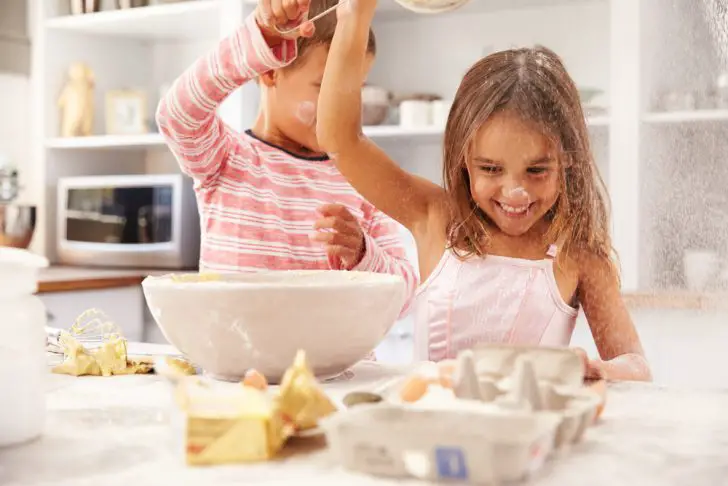Every parent has heard it—the howl of the bored child. “Mom, I don’t have anything to do!” or “Dad, come play with me!” Despite a closet filled with toys and electronic gizmos, children everywhere are flopping down in abject misery at the prospect of filling up their free time.
Is it a parent’s job to provide constant stimulation and to solve every problem? No. In fact, if you constantly entertain your child and solve her problems yourself, you are stealing her ability to be creative, to exercise her imagination, and possibly, to contribute new ideas and solutions to the world.
Why is creativity important? Creativity can teach us to solve problems, especially new problems. Divergent thinking, sometimes called “thinking outside the box”, is the potential source of cures for disease and solutions to world problems such as poverty and hunger.

Be forewarned, though: Creativity can look an awful lot like misbehavior. It can be messy and inefficient, but the world would be lost without it.
How can you nurture creativity in your child?
1. Make messes together.
Programs such as Italy’s Reggio Emilia have learned the value of providing rich natural materials of all kinds, and time and space to explore them. Everything from leaves and pebbles to mud and paints can spark a creative impulse. In a world where parents are in a hurry and “play” is packaged, timed, and organized, creativity can be in short supply. Provide lots of raw materials—the messier the better—and turn your child loose.
2. Stop helping.
If you’re rushing in to “help” every time your child gets stuck — stop. Have a little faith, offer gentle clues, and let your child wrestle with the problem himself. Working through a problem on his own builds critical and creative thinking skills, and the sense of satisfaction he gets from doing it himself is worth far more than your immediate assistance.
3. Be creative yourself.
Not only will creativity enrich your life, it may well inspire your child to discover her own imagination. Knit a scarf or paint with watercolors. Go to a pottery shop and create a bowl together. Share what you know and make space for your child to experiment. You may discover that adding creative activities to your day enriches your life as well as your child’s.
4. Ask, don’t tell.
Consider for a moment: How much do you enjoy being ordered around and told what to do? Your child doesn’t like it much, either. Not only that: Telling a child what to do creates resistance and power struggles, and most parents have enough of those already. You can guide your child and provide clues about behavior without issuing a string of commands and directives. Here’s how:
“Where should you put your dishes when you’re finished with breakfast?”
“Where can you put your homework papers so you don’t forget them in the morning?”
“What do you need to wear so you won’t be cold outside?”
Asking instead of telling invites critical thinking, less defiance—and more creativity.
5. Learn to see mistakes—your own and your child’s—as opportunities to learn.
Mistakes are not embarrassing failures. They are opportunities to learn new skills and to develop persistence. When your child spills his juice, try saying, “Oops—you made a mistake. What can we do now to fix it?” Then follow up by asking, “How can we avoid spilling the juice next time?” You are not only solving an everyday parenting problem (and teaching your child a useful skill in the process), you’re sending your child the message that you have faith in his ability to solve problems, and that mistakes aren’t fatal. Imagine how your family might feel if mistakes were accepted as part of everyday learning and growth.
The world around us grows more complicated with each passing day. Inviting and inspiring your child’s creativity—no matter how messy—may hold the answers for the problems we all face.
Tell us in the comments how you promote creativity in your home!
Cheryl Erwin is a licensed marriage and family therapist and parent coach, and the co-author of several books in the bestselling “Positive Discipline” series, including “Positive Discipline for Preschoolers” and “Positive Discipline for Single Parents.” You can learn more and get personal help at www.cherylerwin.com.












